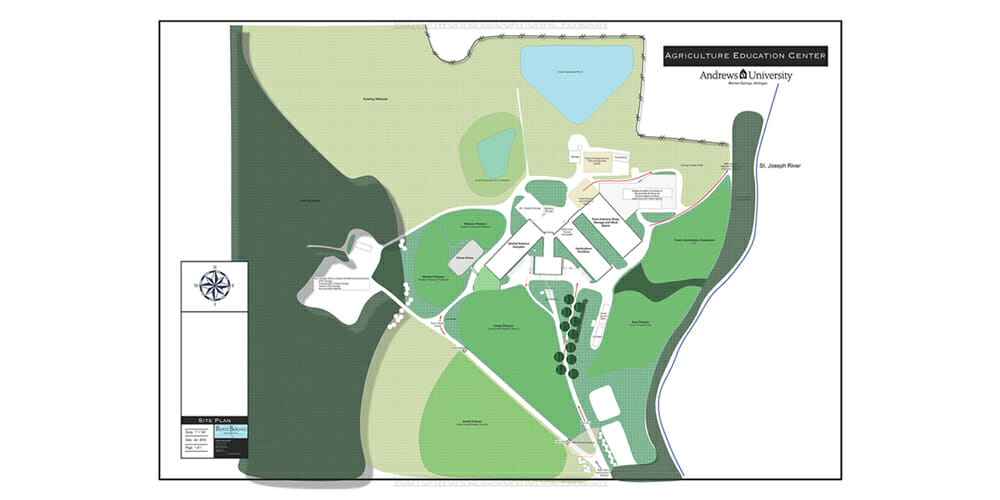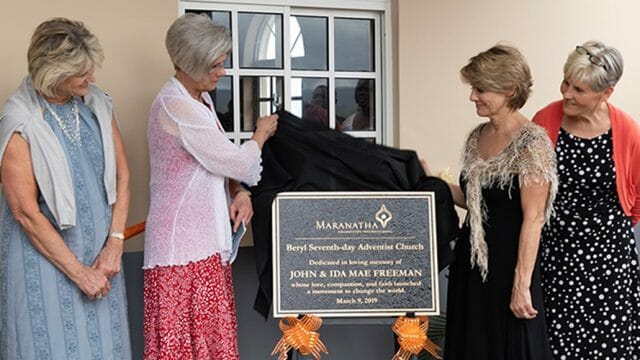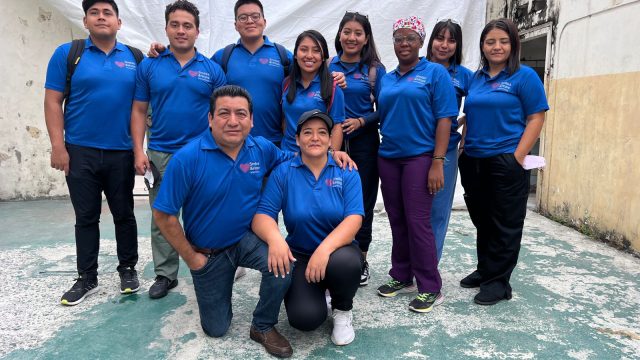New Agriculture Education Center will be built as funds become available.

Andrews University, a Seventh-day Adventist school in Berrien Springs, Michigan, United States, has approved the concept for an Agriculture Education Center within its Department of Sustainable Agriculture.
The new agriculture center would be housed in the facilities of the school’s former dairy and be designed specifically to emphasize responsible, sustainable agricultural practices that reflect a commitment to serving as good stewards of the environment.
“While we will miss the Dairy very much, we are excited about this agriculture center and how it will take the education of our students to the next level,” said Sustainable Agriculture department chair Katherine Koudele. “At the agriculture center, they will develop the skills needed in their future careers and put into practice what they have learned in the classroom.”
Ideas for the Agriculture Education Center were benchmarked with similar schools that have successfully transitioned from an industry to a wholly educational facility. The finished site is proposed to include seeded, fenced pastures for rotational grazing; small animal and calf barns; greenhouses; a classroom; and an Animal Science Complex to house sheep, goats, llamas, alpacas, yearling cattle, horses and miniature horses, and an indoor riding ring. The plans also include an outdoor horse arena; an outdoor horticultural garden production space; a growing-out pond for fingerling fish; and recreational paths along the nearby St. Joseph River and around the center.
The Agriculture Education Center would enable students to have immersive experiences in raising and caring for animals and plants in conjunction with class requirements and research and senior projects. It would also allow the Department of Sustainable Agriculture to partner with other departments on campus for therapy programs, preparation for national and international mission service, and collaborative research and teaching.
Connections would be facilitated with the local community as well. Teachers in K–12 classrooms could bring their students to the agriculture center for outside-the-classroom scientific learning experiences.
Completion of the facilities is projected in five phases over the course of five or more years as funds become available. The first educational phase was approved to begin in April 2019, with educational operations at the center starting in September.
“We are excited for the educational opportunities the center will bring but also for the chance to preserve the agricultural legacy of Andrews,” Koudele said. “We have been a part of our county’s agricultural community for 118 years, and it is an honor to carry on the tradition of our founders.”
The original version of this story was posted on the Andrews University news site.








